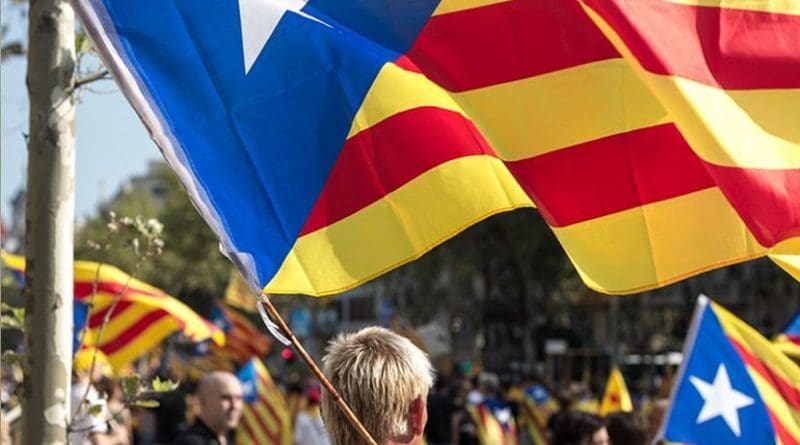Spain: Catalans Set New Red Lines To Back Socialist Sánchez For PM
By EurActiv
By Fernando Heller
(EurActiv) — Catalan pro-independence parties have set conditions for supporting a new investiture of acting Socialist Prime Minister Pedro Sánchez as Spain’s King Felipe VI begins this week a complex round of consultations with several political parties to determine who has more chance of heading the new executive.
The choice is between Sánchez or centre-right opposition chief Alberto Núñez Feijóo.
Although Núñez Feijóo, leader of the People’s Party (PP/EPP), won the snap elections on 23 July, he did not win the majority required- 176 seats out of 350 in parliament – to govern alone.
The far-right VOX party (ECR), the third force in parliament, expressed last week its willingness to support him, although they do not have enough seats to form a stable coalition even if they join forces.
Even though his chances are almost zero, the PP leader wants to present himself before the King to try to be sworn in, a mainly symbolic gesture, Spanish media reported.
However, the key to a new progressive government is in the hands of the seven deputies of the Catalan separatist party Junts per Catalunya (JxCat/Together for Catalonia), whose leader and former Catalan regional president Carles Puigdemont, a fugitive from Spanish justice, has set several conditions for supporting Sánchez.
The votes of Junts X Cat, whose abstention is not sufficient, are key for Sánchez’s socialist party (PSOE/S&D) and the new progressive bloc Sumar, led by Yolanda Díaz, to be able to renew – with the support of several Basque and Catalan nationalist parties – a progressive executive, after the alliance between the PSOE and the almost defunct Unidas Podemos.
First positive signals for Sánchez
The first step to pave the way for a new left-wing government was taken on 17 August, with an absolute majority (178 votes) in parliament backing the appointment of Francina Armengol (PSOE) as parliament speaker, notably thanks to the support of Junts x Cat and the Catalan pro-independence party Republican Left of Catalonia (ERC), Sánchez’s ally in the previous legislature.
The choice of Armengol, who speaks fluent Catalan and is considered a skilled negotiator, was interpreted by political analysts as a gesture towards the Catalan nationalists to please them and moderate their demands.
To achieve this first step, Sánchez had to make some concessions, including making Catalan an official language alongside Spanish in parliament and the official request – which Madrid has already delivered to the EU Council – for the Catalan language to be an official language in the European bloc’s institutions.
However, neither Sánchez nor Sumar has a smooth road ahead of them, EFE reported.
The ‘red line’ of amnesty
From Waterloo, near Brussels, Puigdemont has made it clear that before voting for Sánchez, he wants “verifiable facts” – words that could refer to his possible pardon, to guaranteeing Catalonia’s self-determination and to an “amnesty law” for those involved in the unlawful referendum of self-determination in Catalonia on 1 October 2017.
Both ERC and Junts x Cat, whose relations are not always smooth, have underlined that this amnesty law “is a red line” for giving the green light to a “Sánchez-III” government.
This is a politically sensitive dossier and poses a big challenge for the PSOE and Sumar, as both parties have reiterated that they will not go outside the framework of the Spanish Constitution.
Although the agreements to appoint Armengol do not mention the word “amnesty”, they do speak about “de-judicialisation” (desjudicialización) of the political conflict in Catalonia, a concept that ERC and Junts x Cat want to take advantage of so that the trials still pending for the events of 2017 are halted, and the criminal records related to the failed independence process are fully erased, El País reported.
Although, in principle, Sánchez has a better chance than Núñez Feijóo of becoming prime minister, at the moment, neither of the two has secured sufficient parliamentary support.
If neither candidate manages to be sworn in as the new prime minister, Spain would probably hold new elections in early December, a few days before the end of the Spanish presidency of the EU Council.

